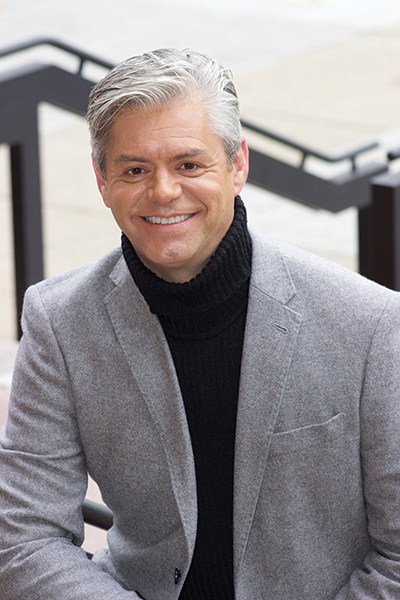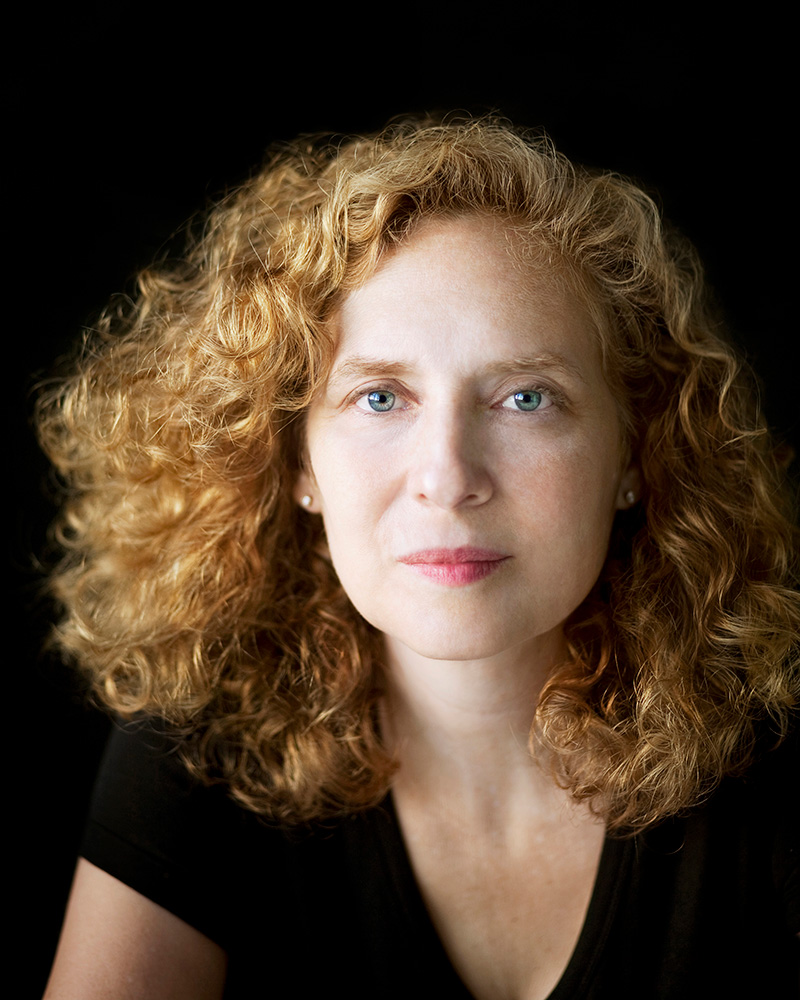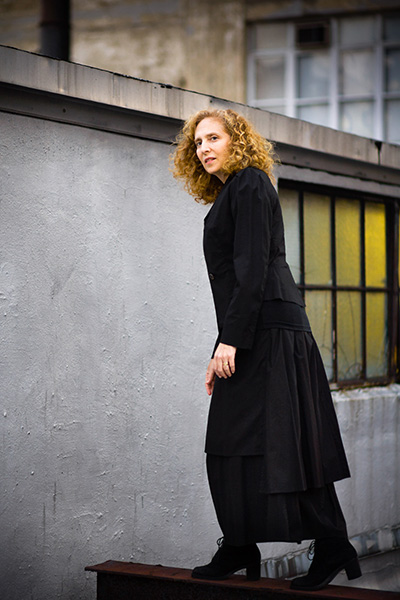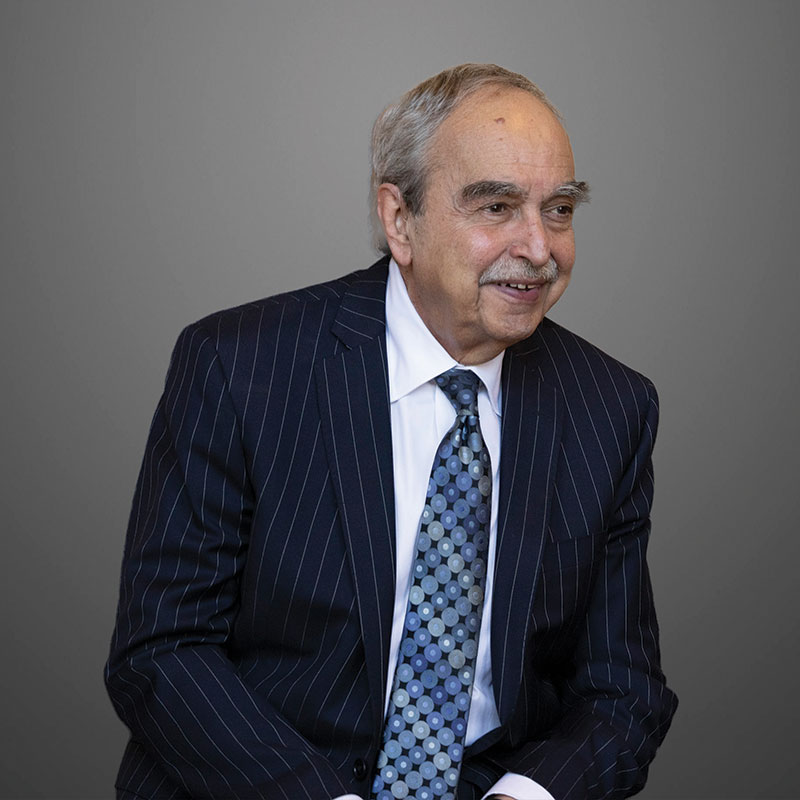New Energy at the May Festival
By David Lyman

“For a lot of years, we didn’t make many changes here,” says Steven Sunderman, the May Festival’s executive director. “But with this—our new artistic model—I think we are making a real statement for our future.”
Now, if you are a May Festival traditionalist, the phrase “new artistic model” is sure to make you a little uneasy. Change is everywhere, of course. But here? At the May Festival? What on earth are they proposing to do with my Festival?
To better understand the new artistic model, you need to look back to the one that guided the Festival for more than 145 years. It was simple and streamlined. There were two primary artistic leaders, a music director and a chorus master. The titles occasionally changed. But as the names suggest, the chorus master—later the Director of Choruses—rehearsed the chorus, while the music director was in charge of the choice of music to be performed.
They were engaged for indefinite periods of time. Some were only around for a couple of Festivals, while others stayed for decades. Remember James Conlon? He was music director for a remarkable 37 years.
Beginning with the 2024 May Festival, that will change. Rather than have a music director with an open-ended contract, the Festival will have a Festival Director with a one-year appointment. Each year, a new director will infuse the Festival with a new aesthetic, a new sense of musical and theatrical exploration.
“This is not a reflection on anyone who has come before,” says Sunderman. “It’s more a reflection on all the musical possibilities that make up the music world today. With this new model, we will be able to bring in folks who have unique talents and insights to curate a single season.”
Even more fascinating is the idea that Festival Directors won’t necessarily be drawn from that ever-so-limited pool of conductors. They could come from any artistic discipline. They could be an actor or a stage director curating the May Festival in the future. Or a visual artist or a singer. The primary requirement is that the Festival Director be a person with a clear and singular artistic vision that can somehow be incorporated into the musical landscape of the May Festival.
On January 9, the Festival announced their inaugural Festival Director—Pulitzer Prize-winning composer Julia Wolfe. Brash, adventurous and exceedingly well-connected through her many creative collaborations, she is precisely the type of person the May Festival was looking for when it set out to re-imagine the artistic enterprise.

It’s not just the music that gives Wolfe’s work its significance. In Her Story, Wolfe’s 40-minute oratorio, the libretto is built around text by Sojourner Truth and the correspondence of Abigail Adams. Performed by the members of the Lorelei Ensemble, Her Story is an often-ferocious work as it recalls pivotal moments in American women’s centuries-old campaign to achieve equal rights.
In Anthracite Fields, her Pulitzer Prize-winning piece about the hazardous and sometimes savage life in the coal mines of Pennsylvania, where she grew up, Wolfe drew on hundreds of sources, from oral histories and interviews to coal industry ads. This compelling story will be told by the May Festival Chorus who will be joined by the composer’s own Bang on the Can All-Stars.
Obviously, Wolfe is driven by an acute sense of morality and social justice. Indeed, when she arrived at the University of Michigan as an undergraduate, her intention was to study social science.
“Nobody in my family was a musician,” recalls Wolfe. “But my parents got this baby grand piano. They thought it would look nice in the living room. And it did.” That’s when Julia started to take piano lessons. She showed some facility. But she was hardly what you would call a driven piano student.

“I was the designated accompanist when my grandmother would come over and want to sing show tunes,” she says. “Once I quit my lessons, I picked up folk guitar.”
But again, her goal in school was not to train as a music maker.
“You know—I was going to read Marx and Engels and change the world. Then I accidentally walked into a music class.”
Mind you, it wasn’t just any music class. It was called creative musicianship. Wolfe was part of U-M’s Residential College, a progressive interdisciplinary liberal arts program. The class was taught by a professor named Jane Heirich.
“It was an incredible class,” says Wolfe, who was clearly inspired by what she experienced there. “She wasn’t a composer. But she connected the body with music-making. I wound up singing in a madrigal group. And I picked up the flute, though I wasn’t really into practicing.”
She pauses for a moment, reflecting on the fertile creative atmosphere she found at school. It felt like anything was possible.
“One thing about being a woman,” she says, “is that coming into this field, I didn’t know enough to know I couldn’t do it. You just go ‘I think I’ll do that. This is cool.’”
It was that attitude—that anything is possible—that was precisely what Sunderman found so intriguing about Wolfe’s approach to music. And what he hoped she would bring to this new vision of the May Festival.
“I am loving the season that Julia has curated for us,” says Sunderman. “We were looking for someone who was innovative, someone who understood how we are looking to re-energize the May Festival. From the very first time we spoke on the phone, she got it.”
But the new artistic model is not focused solely on new music. For 151 years, the May Festival has revolved around choral music of all types.
So the 2024 Festival will have its share of more familiar music, as well:
- The May 18 program, led by Franco-British conductor Stephanie Childress, features Ralph Vaughan Williams’ Dona nobis pacem. Written in the depths of the Great Depression and the increasing fear of another World War, the work is, quite literally, a plea for peace. Also on the program: David Lang’s the national anthems and a pair of works by Wolfe, Pretty and the world premiere of All that breathes, commissioned by the May Festival.
- The closing program, on May 25, features the Fauré Requiem, conducted by François López-Ferrer, former Associate Conductor of the CSO and May Festival and a one-time member of the May Festival Chorus. Also on the program: Wolfe’s Her Story, with the Lorelei Ensemble.
The opening night performance on May 17 features just one work: Franz Joseph Haydn’s The Creation.

“It’s a majestic piece,” says Director of Choruses Robert Porco, who will conduct the concert. “It’s widely regarded as one of his finest masterpieces.”
Haydn was already a musical celebrity throughout Europe when he composed the piece in 1798. At the age of 66, he was still in his musical prime. Three years later, he would compose his other great oratorio, The Seasons.
But by the very nature of its subject matter, The Creation is a sweeping and highly emotional piece. Small wonder that it was so widely revered during Haydn’s life.
Endowing the work with even more significance this year is that this will be the final concert conducted by Porco, who steps down from his position at the end of this, his 35th May Festival.
“There is something very inspirational about leading a chorus, particularly this one,” says Porco. “They spend hundreds and hundreds of hours rehearsing. They are all religions, all politics, all beliefs. But all those differences seem to disappear for those three hours when we rehearse. For them—and for me—the reward is the music.”